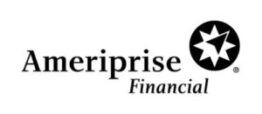
A federal circuit court has ruled that the Financial Industry Regulatory Authority Inc., or FINRA, cannot collect fines through court judgments, leaving investors to wonder how effective the self-regulatory organization can be as a disciplinary body.
The decision from the 2nd U.S. Circuit Court of appeals, entered Oct. 5, stated that FINRA does not have the authority to bring court actions to collect disciplinary fines. The appeals court reversed the U.S. District Court for the Southern District of New York and vacated the money judgment FINRA had obtained on its counterclaim against John J. Fiero and Fiero Brothers Inc.
In 2000, a panel of the National Association of Securities Dealers — FINRA’s predecessor — found that Fiero Bros., a registered broker-dealer, had engaged in market manipulation and illegal short selling. The firm was expelled from membership and the Fieros were fined $1 million plus costs, jointly and severally, the decision said. John J. Fiero was the sole registered representative of the firm.
The Fieros refused to pay, and so began the long road to the 2nd Circuit, beginning in New York state courts. While the trial court held that FINRA had the authority as a matter of contract law to enforce its rules, and entered a $1.3 million judgment, the state appeals court reversed for lack of subject matter jurisdiction.
In February, 2008, the Fieros filed suit in federal court seeking a declaratory judgment that FINRA had no authority to enforce its fines through the courts, and FINRA counterclaimed, advancing the breach of contract theory, the decision said
The Fieros argued that FINRA has no authority to bring judicial actions to collect monetary sanctions despite being authorized under the Exchange Act and its own rules and bylaws to impose sanctions on its members. FINRA argued that it does have this authority under the Exchange Act, as well as a FINRA rule submitted to the Securities and Exchange Commission, or SEC, in 1990. The SEC did not reject the rule.
First, the 2nd Circuit considered the Exchange Act. While the act states that self-regulatory organizations, or SROs, can discipline their members, it does not contain any express statutory authority for SROs to bring judicial actions to enforce the collection of fines.
Turning to congressional intent, the court noted that various pieces of legislation, including the Exchange Act, the Sarbanes Oxley Act of 2002 and the Dodd Frank Wall Street Reform Act of 2010, all make specific mention of the SEC’s right to bring enforcement actions. The Exchange Act also mentions private rights of action for damages. Therefore, the court reasoned, if Congress intended to give an SRO access to the court for judicial enforcement of its sanctions, it would have done so.
Aside from authority under the Exchange Act, FINRA contended that a rule promulgated in 1990 allows it to access the courts. The rule said that if the SRO’s internal efforts for the collection of fines fail, it can refer the matter to collection agencies and seek to reduce such fines to a judgment if appropriate, according to the court’s decision.
The Court Rejected FINRA’s Contention on Substance and Procedure
The wording of the 1990 rule change shows it was not meant to grant new authorization from the SEC to FINRA to bring judicial enforcement actions, the decision said. The rule rather assumed a pre-existing authority and was just meant to give notice of a new policy.
Even assuming the rule was meant to grant this authority, the court held it was promulgated incorrectly under the Exchange Act. FINRA claimed it was a “housekeeping” rule that took effect immediately upon filing with the SEC because it dealt with the enforcement of existing rules and policies, and did not affect any substantive rights.
But the court said the 1990 rule was mere housekeeping. Because of the lack of an express statutory provision authorizing FINRA to judicially enforce its fines, the 1990 rule was new and substantive. It affected the rights of barred and suspended members to simply opt out of the industry and not pay the fines imposed upon them in disciplinary proceedings.
For this reason, the 1990 rule was subject to the notice and comment period required by Section19(b) of the Exchange Act. Because FINRA’s predecessor improperly designated the 1990 rule change, and never went through the notice and comment period, the rule was never valid and it cannot authorize FINRA to judicially enforce the collection of its disciplinary fines, the court’s decision said.
FINRA can still enlist the assistance of the SEC to obtain court orders enforcing sanctions, but the Oct. 5 decision takes away perhaps its most powerful, and certainly its most direct tool. FINRA could possibly appeal the case to the U.S. Supreme Court.
Guiliano Law Group
The practice of Nicholas J. Guiliano, Esq., and The Guiliano Law Group, P.C., is limited to the representation of investors in claims for fraud in connection with the sale of securities, the sale or recommendation of excessively risky or unsuitable securities, breach of fiduciary duty, and the failure to supervise. We accept representation on a contingent fee basis, meaning there is no cost to unless we make a recovery for you, and there is never any charge for a consultation or an evaluation of your claim. For more information contact us at (877) SEC-ATTY.








